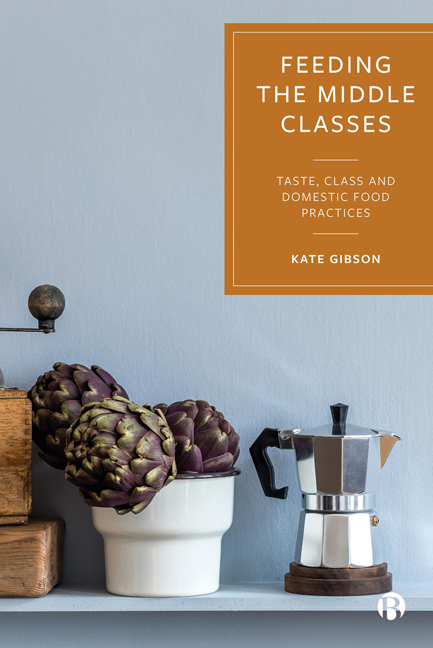Book contents
- Frontmatter
- Contents
- List of Figures and Table
- Acknowledgements
- 1 Introduction
- 2 Class, Consumption and the Domestication of Food
- 3 Talking Food: Classed Narratives, Social Identities and Biographical Transitions
- 4 Homemade Food: Individualized Processes of Household Investment
- 5 Culinary Capital: Knowledge, Learnt Practice and Acquired Taste
- 6 Conclusion
- References
- Index
3 - Talking Food: Classed Narratives, Social Identities and Biographical Transitions
Published online by Cambridge University Press: 27 March 2024
- Frontmatter
- Contents
- List of Figures and Table
- Acknowledgements
- 1 Introduction
- 2 Class, Consumption and the Domestication of Food
- 3 Talking Food: Classed Narratives, Social Identities and Biographical Transitions
- 4 Homemade Food: Individualized Processes of Household Investment
- 5 Culinary Capital: Knowledge, Learnt Practice and Acquired Taste
- 6 Conclusion
- References
- Index
Summary
This chapter speaks to debates around notions of individualism, reflexivity and choice. It has two main foci. First, I show how the centrality of individuality in participant narratives reproduces (classed) ideas that individual and reflexive food consumption is central to the makings of identity. A theme of not belonging to collective categories such as class, emerges across the sample, but the repeated pattern of distancing from group belongingness I see as indicative of some form of collective recognition which operates around the notion of being individual. From this, I suggest that participants’ propensity to narrate a position of individuality can be situated within a broader discursive framework of consumerism within which notions of individual choice dominate. Second, I place theoretical emphasis on practices and dispositions as a manifestation of a continual ‘point of suture’ (Hall 1996: 6) between the self and (classed) social position. I consider participant biographical data through a sociohistorical lens, noting that going to university, travelling and establishing households emerged as key moments in coming-of-age food stories. Drawing on participant narratives of mobility, I note that personal transition points involving the acquisition of capital often go hand-in-hand with encountering, and honing, understandings of ‘good’ taste. Regardless of chronological age, what emerges from these stories is that the expansion of tastes is understood as a consequence of globalization and relatedly, the increase of diversity, abundance and choice in the field of food consumption. Considering participants’ experience of taste expansion in a broader social context, I question the extent to which a consumerist ideology, which stipulates the centrality of individual choice, impacts on their orientations towards consuming diversity.
Unique identities
Before exploring how food features in life histories, I want to first unpick how participants ‘see’ themselves as classed (or not). I have noted previously that class is a contentious concept. This is not limited to the conceptual realms of sociological debate. Participant narratives about class highlight the conceptual slippiness and fuzziness of class, despite it being employed (or variations of the term) in everyday contexts as what follows will show. I asked about class at the end of the first interview and many participants offered lengthy responses.
- Type
- Chapter
- Information
- Feeding the Middle ClassesTaste, Class and Domestic Food Practices, pp. 45 - 76Publisher: Bristol University PressPrint publication year: 2023



